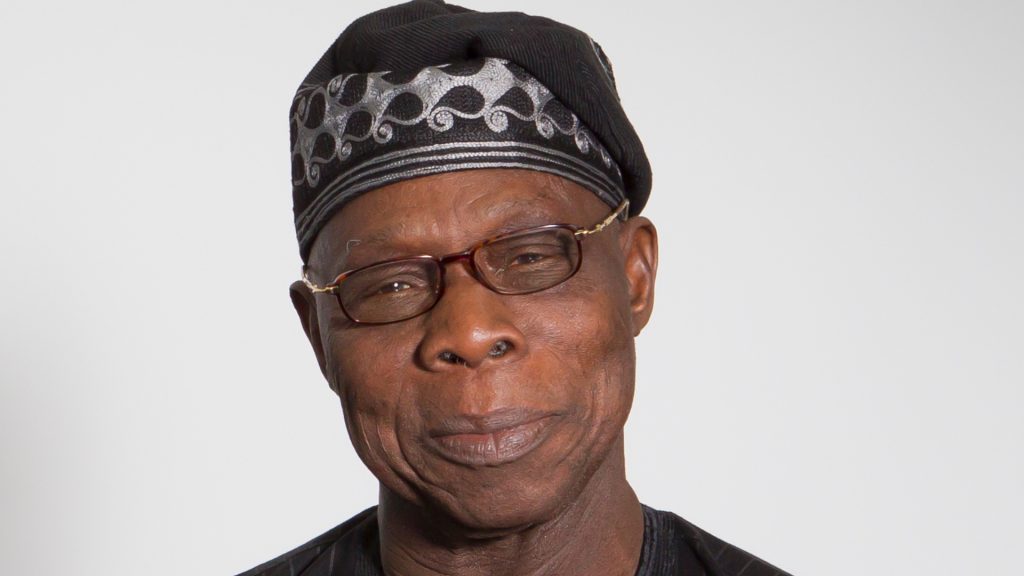Olusegun Obasanjo Biography – Age, Career, Education, Early Life, Family, Awards, Political Career, Wiki And Net Worth
- Let us discuss Olusegun Obasanjo’s Biography in terms of his Age, Career, Education, Early Life, Family And Net Worth and much more.
Chief Dr. Olusegun Mathew Okikiola Aremu Obasanjo was born on May 5, 1937, in Abeokuta, Ogun State, Nigeria, to Amos Adigun Obasanjo Bankole of Sango Ota Ado-Odo/Ota Local Government Area of Ogun State and Ashabi. He is a former Nigerian Army general who served as the country’s millitary leader from 1976 to 1979 and democratic leader from 1999 to 2007, making him the country’s longest serving president.
In this article, I will discuss Olusegun Obasanjo’s biography, career, age, place of birth, net worth, and given name. Let’s start with his profile.


| Full Name: | Chief Dr. Olusegun Mathew Okikiola Aremu Obasanjo |
| Popular Name | Olusegun Obasanjo or Baba Iyabo |
| Date of Birth: | May 5, 1937 |
| Place of Birth:: | Abeokuta, Ogun State, Nigeria |
| State of Origin: | Ogun State |
| Nationality: | Nigerian |
| Occupation: | Politician, Business Man |
| Net Worth: | $1.6 billion |
| Marital Status: | Married |
| Source | The9jafresh |
Olusegun Obasanjo Biography


Olusegun Obasanjo is a former Nigerian President who served from 1999 to 2007. He was Nigeria’s Army General and served as the country’s military ruler from February 1976 to October 1979. He is still remembered as Africa’s first military ruler who handed over power to a democratic government. By the time General Sani Abacha’s military dictatorship ended with his death, Nigeria had earned the infamous pariah status that was marked by a fifteen-year oppressive regime.
Olusegun Obasanjo also faced atrocities of the authoritative rule of General Sani Abacha that included his confinement in 1995. Obasanjo played an instrumental role in bringing back democracy in the country thus mending the tarnished image of the nation. He was democratically elected as President of the Federal Republic of Nigeria in 1999. He remained ‘Chairperson of the African Union’ from July 2004 to January 2006.
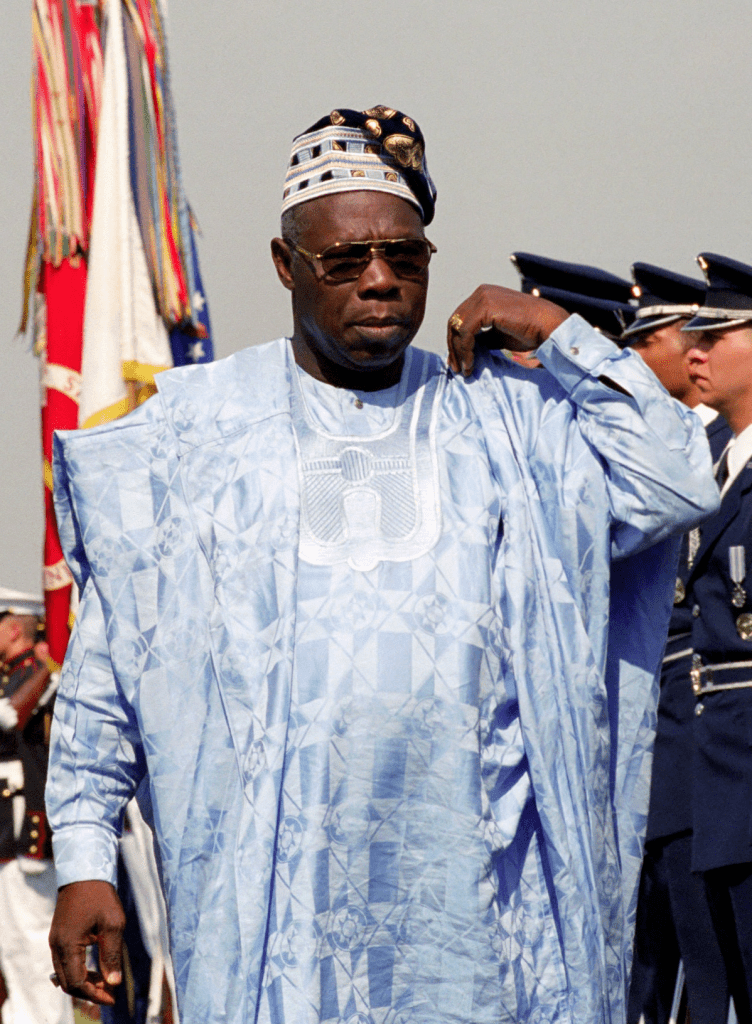

He is the descendent of the Yoruba clan and a chieftain of the Ekerin Balogun of the Egba clan and that of the Balogun of the Owu Lineage. The UN inducted him as special envoy of Africa. Since then he oversees the democratic elections of countries across the African continent representing the ‘African Union and Ecowas’.
Olusegun Obasanjo Early Life and Education


Obasanjo began his primary school education at Saint David Ebenezer School in Ibogun in 1948. He attended Baptist Boys’ High School (BBHS) in Abeokuta for secondary school from 1952 to 1957. Other schools he attended included Mons Officers’ Cadet School in Aldershot, England, the Royal College of Military Engineering in Chatham, England, the School of Survey in Newbury, England, the British Royal Engineers’ Young Officers School in Shrivenham, England, the Indian Defence Staff College, the Indian Army School of Engineering, and the Royal College of Defence Studies in London.
His mother died in 1958, and his father in 1959, leaving him an orphan at the age of 22.
Olusegun Obasanjo Career
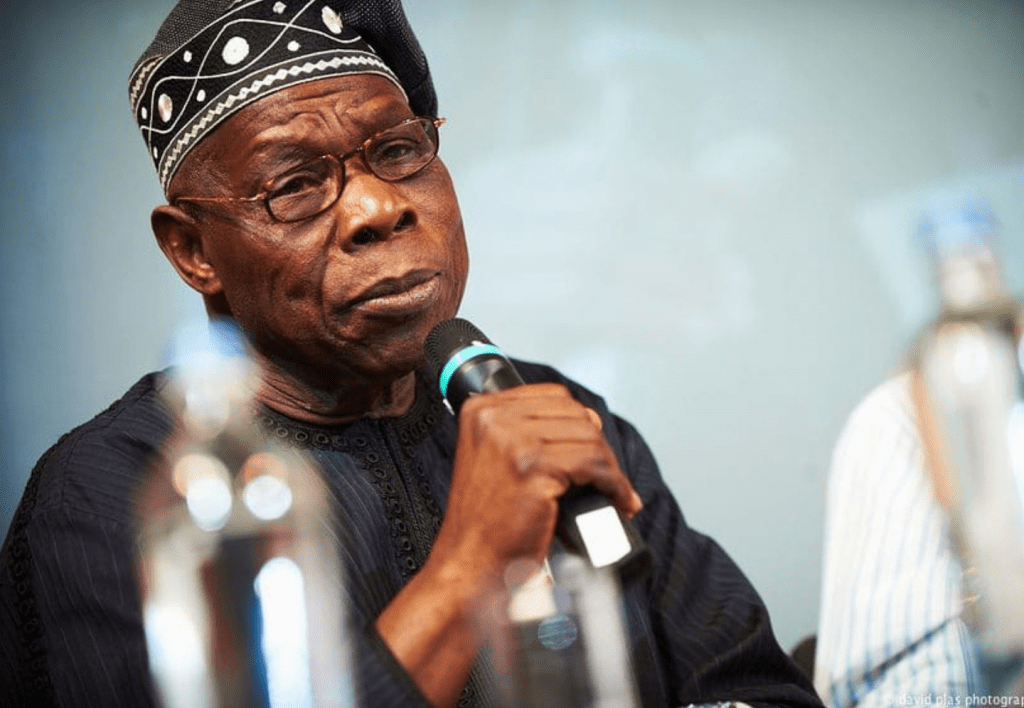

In 1958, Obasanjo joined the army and received training both in Nigeria and abroad. During his 21-year military career, he served in the United Nations peacekeeping mission in former Zaire and commanded the 3rd Marine Commando Division during Nigeria’s 30-month Biafran civil war (from 1967 to 1970).
Obasanjo frequently studied in Britain during his military career, attending the Royal College of Military Engineering in Chatham and the School of Survey in Newbury. He won first prize and a citation as “the best Commonwealth student ever” at the British Royal Engineers’ Young Officers School in Shrivenham. Obasanjo attended the Indian Defence Staff College and the Indian Army School of Engineering in the mid-1960s.


In his two decades in the military, Obasanjo advanced steadily through the ranks. From 1958 to 1959, he served in the 5th Battalion in Kaduna and the Cameroons. In 1959, he was commissioned second lieutenant. The following year, he was promoted to lieutenant, and served in the Nigerian contingent of the UN Force in the Congo. In 1963, he became commander of the only engineering unit of the Nigerian Army; the same year, he was promoted to captain. He became a major in 1965, lieutenant-colonel in 1967, and colonel in 1969.
Meanwhile, in 1960, Nigeria gained its independence from Britain, and a period of intense political instability followed. In 1966, the military seized power. In 1969, Biafra–the country’s eastern, predominantly-Christian region–seceded from Nigeria, and civil war broke out. During the civil war, Obasanjo served as commander of the 3rd marine commando division. Under his leadership, federal troops split the Biafran Army into two enclaves, and forced a surrender less than a month later.


The political situation in Nigeria, then under military rule, continued to be unstable. In 1974, the Nigerian head of state, General Yakubu Gowon, declared that a return to civilian rule would be postponed indefinitely. Opposition to Gowon’s rule grew, and in 1975 Obasanjo, along with Murtala Muhammed, led a bloodless coup that overthrew him.
Muhammed was assassinated the following year, and Obasanjo was appointed head of state and commander-in-chief of the Nigerian Armed Forces. He assured Nigerians that he would adhere to a strict plan to return the country to civilian rule.
During his presidency, Obasanjo established himself as a tough leader who was not afraid to stand up to colonial powers. After the country’s white population usurped power, British Prime Minister Margaret Thatcher refused to restore British authority in Rhodesia (now Zimbabwe). Obasanjo responded by nationalizing British Petroleum’s interests in Nigeria and threatening a boycott of British imports. Thatcher eventually relented, and the process of free elections and majority rule in Zimbabwe began.
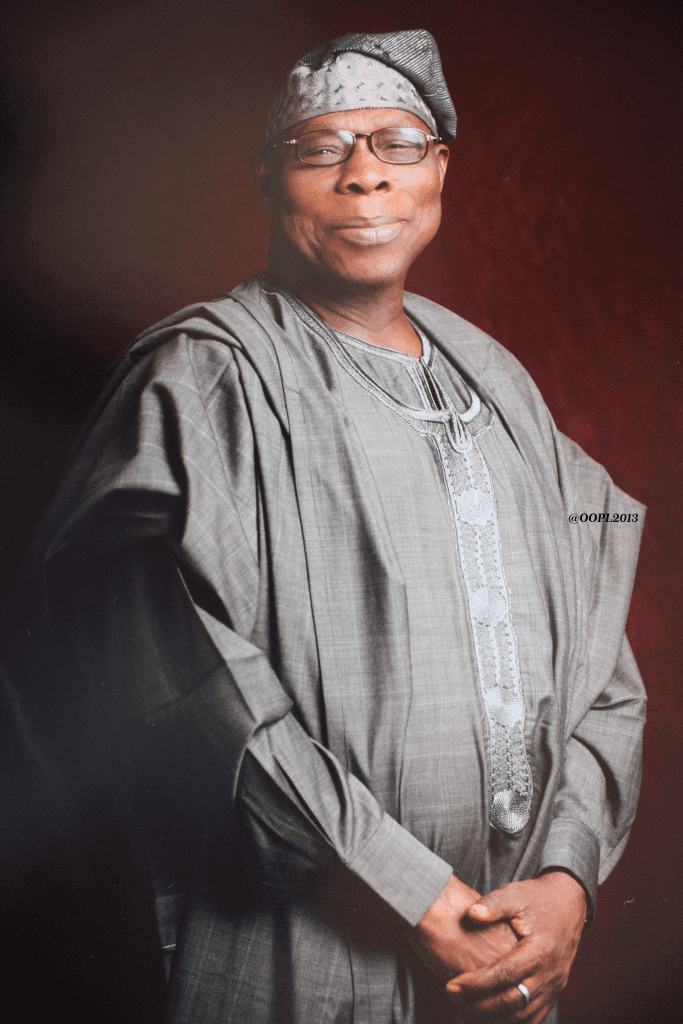

In 1979, after three years as Nigeria’s leader, Obasanjo handed power to elected president Shehu Shagari. In doing so, he became the only military ruler in Nigeria’s history to voluntarily step down in favor of a democratically-elected government. While Obasanjo was widely praised for adhering to his promise, many Nigerians were glad to see him go. “Students and journalists remember his years in office as a time of repression and lack of tolerance,” Barnaby Phillips wrote in the Daily Telegraph.
While in office, Obasanjo oversaw the creation of a new constitution for Nigeria, and implemented a wide range of governmental reforms. Having retired from the armed forces as a general in 1979, Obasanjo started a company called Obasanjo Farms Nigeria Ltd. in Otta, Ogun State.


During the dictatorship of Sani Abacha (1993–1998), Obasanjo spoke out against the human rights abuses of the regime, and was imprisoned for alleged participation in an aborted coup based on testimony obtained via torture. He was released only after Abacha’s sudden death on 8 June 1998. While in prison, Obasanjo became a born-again Christian.
On March 1st, 1999, Obasanjo was formally proclaimed Nigeria’s new civilian president. According to the final tally, Obasanjo and his running mate Atiku Abubakar, heading the People’s Democratic Party (PDP), won by 63 percent of the vote, while Chief Olu Falae, head of a coalition of the Alliance for Democracy and the All People’s Party, captured 37 percent. He recontested in 2003 and won a second term bid still under the PDP.
In 2007, he attempted to change the Nigrian constitution to enable him run for a third term. The proposal was rejected by the National assembly led by the Senate President Ken Nnamani and Obasanjo was soon succeeded by Umaru Musa Yar’Adua.


Since leaving office, Obasanjo has been influential at home and in Africa. At the Zimbabwean election of July 2013, Obasanjo headed a delegation of African Union election observers. He has twice written open letters to Nigerian presidents lamenting their incompetence. He wrote President Goodluck Jonathan in May 2014 and President Muhammadu Buhari in January 2018. In January 2018, his political movement called “Coalition for Nigeria” was launched in Abuja.
Further Education
Obasanjo defended his PhD thesis at the National Open University of Nigeria (NOUN) in December 2017. He now has a doctorate in theology.
Books Written by Olusegun Obasanjo


- A New Dawn
- Addressing Africa’s Youth Employment and food security Crisis: The Role of African Agriculture in Job Creation.
- Africa in Perspective
- Africa Through the Eyes of A Patriot
- Africa’s Critical Choices: A Call for a Pan-African Roadmap
- Challenges of Leadership in Africa
- Democracy Works: Re-Wiring Politics to Africa’s Advantage
- Dust Suspended: A memoir of Colonial, Overseas and Diplomatic Service Life 1953 to 1986
- Forging a Compact in U.S. African Relations: The Fifth David M. Abshire Endowed Lecture, 15 December 1987.
- Guides to Effective Prayer
- L’Afrique en Marche: un manuel pour la reussite économique
- Letters to Change the World: From Pankhurst to Orwell.
- Making Africa Work: A handbook
- My Command
- My Watch
- My Watch Volume 1: Early Life and Military
- My Watch Volume 2: Political and Public Affairs
- My Watch Volume 3: Now and Then
- Not my Will
- Nzeogwu
- The Animal Called Man
- The Challenges of Agricultural Production and Food Security in Africa
- The Thabo Mbeki I know
- War Wounds: Development Costs of Conflict in Southern Sudan
Olusegun Obasanjo Awards


Obasanjo holds numerous awards including the Grand Commander of the Order of the Federal Republic of Nigeria (GCFR), Africa Prize for Leadership for the Sustainable End of Hunger, and several honorary degrees.
Olusegun Obasanjo Personal Life
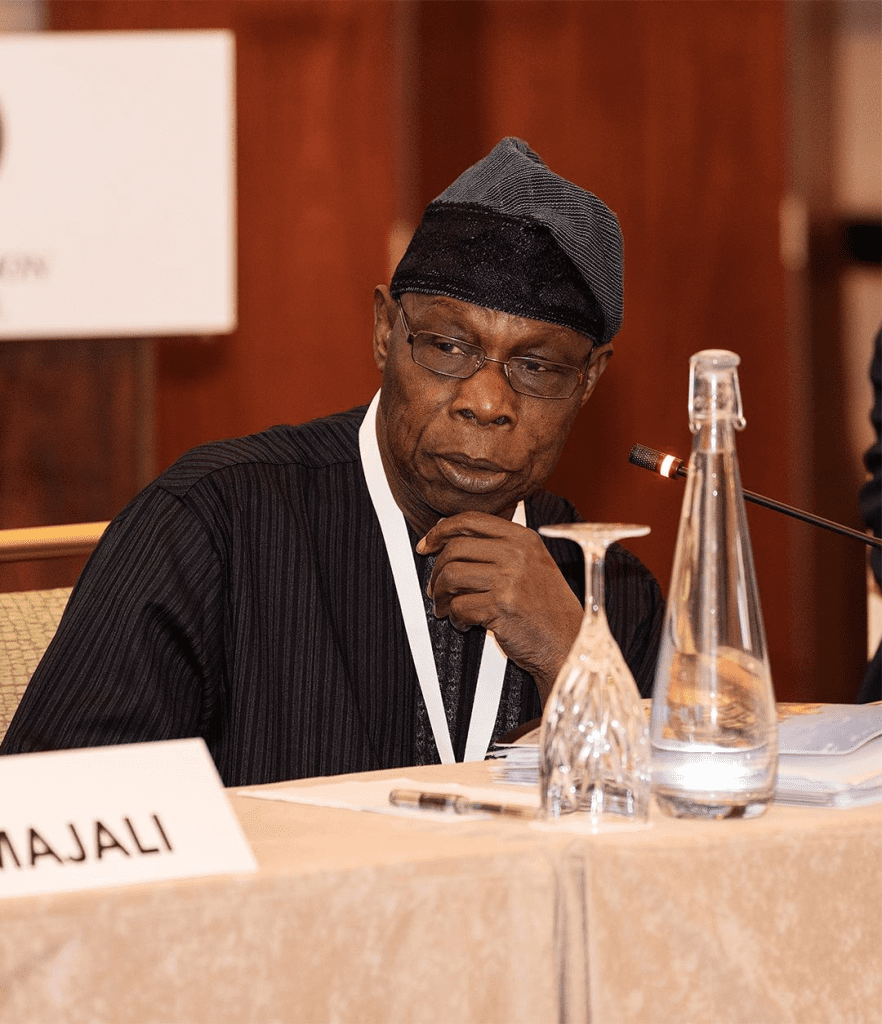

Obasanjo had four marriages. Esther Oluremi, Lynda (deceased), Mojiosola Adekunle (deceased), and Stella Abebe, Nigeria’s first lady from 1999 until her death in 2005 after an abdominoplasty in Spain, were his wives. Bisoye, Biyi, Bola, Bukola, Busola, Damilola, Dare, Dayo, Deboye, Funke, Funso, Gbenga, Iyabo, Juwon, Kofo, Kunle, Olu, Segun, Seun, and Toyosi are his children. Iyabo served as a senator for the Ogun Central Senatorial District from May 2007 to May 2011.
In addition to a variety of chieftaincy titles, Obasanjo holds the titles of the Balogun of Owu and the Ekerin Balogun of the Egba clan of Yorubaland. In December 2017, the former president bagged the award of Doctor of Philosophy (PhD) in Christian Theology from the Department of Religious Studies, Faculty of Arts of the National Open University of Nigeria (NOUN), Abeokuta Study Centre, Ogun State.
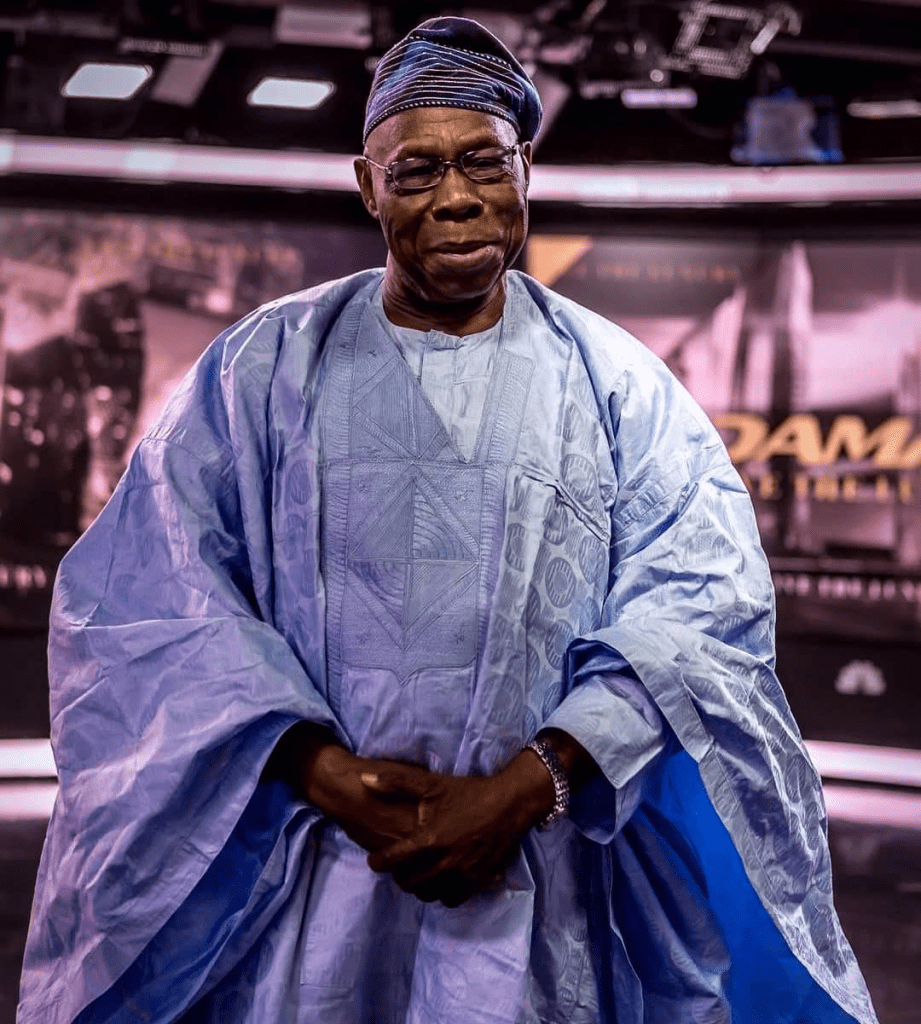

Obasanjo was pronounced worthy and competent for the award after 163 minutes robust defence of his voluminous thesis before a six–man panel. His thesis was titled, “Resolving the Unfinished Agenda in Liberation Theology: Leadership, Poverty and Underdevelopment in North Eastern Nigeria.”
Obasanjo is also said to own a Nigerian oil block. He is also a farmer who owns the largest chicken poultry in West Africa. His farm is known as “Otta Farm,” and it employs over 6000 Nigerians. Despite the fact that OBJ’s assets are never fully disclosed, Forbes estimates his current net worth to be $20.8 billion.
Olusegun Obasanjo Net Worth


According to Buzz Nigeria, former President Olusegun Obasanjo has a net worth estimated at $1.6 billion, which is roughly N663 billion. It was reported that his sources of income came from his career in politics and investments in various big businesses. This has made him one of the richest politicians in Nigeria.
Thank you for taking the time to read Olusegun Obasanjo’s Full Biography And Net Worth, which includes his Date Of Birth, State Of Origin, Marriage, Children, House, Cars, Educational Background, Qualifications, Childhood, History, Wikipedia, Bio, Siblings, and much more.
If you have any further information regarding The Full Biography And Profile Of Olusegun Obasanjo, please contact us via the comment box below or by our email address on the contact us page.


